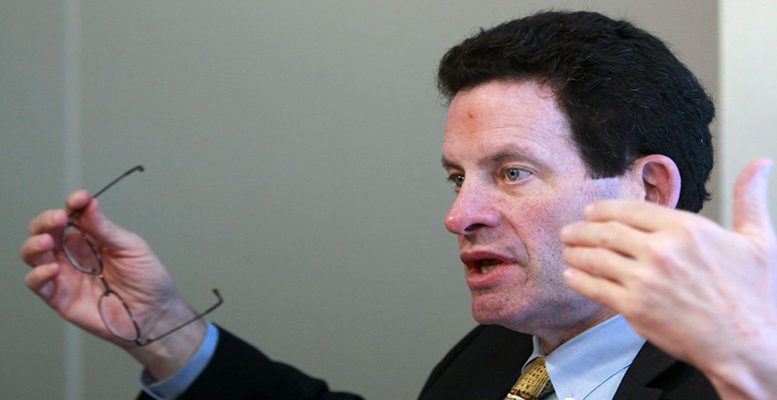Pablo Pardo (Washington) | Kenneth Fisher has been in the investment fund industry for more than four decades. His fund management company Fisher Investment, had $139 billion under management as of 31 March, while his personal fortune amounted to $5.4 billion as of 30 April, according to Forbes magazine.
Q: What is your opinion of Joe Biden’s management?
A: His strategy is to do as much as he can as fast as he can, because he faces the real danger of the Democratic Party losing its majority in the House of Representatives in 2022. In the long run, he will be more inclined to generate more regulation, not through laws, but through state agencies. Beyond that, of course, Biden has the problem of the battle between the Democratic left and right wings, which will be especially visible in the negotiation of the infrastructure plan.
But, in the short term, what defines Biden’s management is haste. A rush to spend. And that has been evident in the $1.9 trillion economic stimulus programme approved in March. These include a number of items that have nothing to do with Covid, but simply with things Democrats like to spend. The key to that plan is that it doesn’t include tax increases, so it doesn’t need to be approved by a 60-vote majority in the Senate, which Biden doesn’t have. All he needed was 51 votes [those of the 50 Democratic senators plus the vice president, Kamala Harris, who has a casting vote in case of a tie in the Senate].
But in doing so, he has generated a lot of resentment among Republicans. And that’s going to make it harder to pass future legislation. The traditional idea of politics is based on compromise, and now neither party is inclined to compromise. In any case, the market is not affected by this situation because it has essentially discounted it.
Q: Should we buy shares in construction or infrastructure companies in anticipation of Biden’s infrastructure investment plan?
A: There is going to be an infrastructure bill, but it’s probably going to be a disappointment for those expecting a big bill, including infrastructure companies. Remember, when Trump was elected, there was an immediate assumption that it was going to be good for defence companies. And, for a brief period, the stocks of those companies did very well. But Trump was never able to do everything he wanted on defence and the economic benefits for the sector never went as far as many had hoped. So the price of their stocks lost momentum. In a sense, it’s going to be worse for infrastructure stocks now.
Q: Why?
A: Remember, when Obama came to the White House, he often used the expression “shovel-ready infrastructure”. The same thing is going to happen now. There are too many obstacles to getting it done.
Q: What kind of obstacles?
A: I’ll give you an example I know well, because it’s the town of Camas, where Fisher Investments is headquartered. Camas is on the north bank of the Columbia River in the state of Washington, and on the south bank, which is the state of Oregon, is a much larger city, Portland. There are two bridges across the river. One is very old, and the other was built in the 1980s.
Since the bridges were built, there have been a number of regulatory authorities on both sides of the river whose employees are union members, which shields them from deciding what they do and what they don’t do, they can’t be fired, and whose approval for any work on the bridge is required. So, to do anything on the bridge, you need the approval of the federal government, the governments of the two states – Washington and Oregon – the two counties – Clark and Multnomah – and the two cities. All of that takes a long time to achieve.
With so many regulatory authorities, it is clear that there are no infrastructure projects ready to be started. Any infrastructure plan passed by Congress will take a long time to be seen on the ground for that reason.
You can read the full interview in the May issue of Consejeros magazine;





